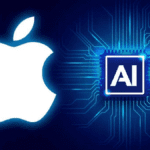
Decentralized finance refers to a new financial system built on blockchain technology that operates on a decentralized infrastructure. DeFi eliminates intermediaries such as banks and financial institutions and enables users to directly control and access financial services. It enables users to take control of their financial assets and participate in a new, decentralized financial infrastructure.
The concept of DeFi emerged in the aftermath of the 2008 financial crisis, as a response to the need for a more transparent, secure, and accessible financial system. The first decentralized finance application, MakerDAO, was launched in 2015, and since then, the DeFi ecosystem has rapidly expanded. Today, DeFi has become a multi-billion dollar industry, offering a range of financial services, from lending and borrowing to yield farming and trading.
Shift from traditional finance to DeFi
DeFi has challenged the traditional financial system by offering a more inclusive and accessible alternative to traditional financial services. The decentralization of finance has enabled users to take control of their financial assets and participate in a new financial infrastructure. The growth of DeFi has led to a shift away from traditional finance, as more and more users adopt decentralized financial services.
Increase in financial accessibility and inclusiveness
DeFi removes the traditional barriers to financial services and enables anyone with an internet connection to access financial services. It has the potential to increase financial inclusiveness by enabling unbanked and underbanked populations to access financial services. By reducing the dependence on centralized intermediaries, DeFi can increase financial accessibility and reduce the costs associated with traditional financial services.
Decentralization of financial power
DeFi operates on a decentralized infrastructure, where users control their own assets and financial transactions are conducted directly between users. This decentralization of power has the potential to reduce the concentration of financial power in the hands of a few centralized institutions. The decentralization of finance has the potential to increase transparency, security, and accountability in the financial system.
Creation of new financial opportunities
DeFi has created new financial opportunities by enabling users to participate in new financial services, such as yield farming and decentralized exchanges. It has also enabled the creation of new, decentralized financial products and services that were not previously possible in traditional finance. By removing the barriers to entry, DeFi has created a more level playing field for financial innovation and competition.
Security and volatility concerns
DeFi is based on blockchain technology, which is still in its early stages and has yet to be fully tested. Decentralized finance applications have suffered from hacking and security incidents in the past, leading to the loss of user funds. DeFi also involves significant volatility and price swings, which can lead to financial losses for users.
Regulation and legal framework
DeFi operates in a regulatory gray area, and there is currently limited legal protection for DeFi users. Governments and financial regulators are only beginning to grapple with the challenges posed by DeFi, and it is uncertain how they will respond. There is a risk that regulations may stifle innovation or lead to the fragmentation of the DeFi ecosystem.
Integration with traditional finance
DeFi operates in a separate financial system, and there is currently limited integration with traditional finance. This lack of integration can limit the reach and impact of DeFi and make it difficult for DeFi services to reach mainstream users. DeFi will need to overcome technical and regulatory challenges to fully integrate with traditional finance and achieve widespread adoption.
The growth of DeFi is likely to continue as more users adopt decentralized financial services and the technology matures. The impact of DeFi on the economy will depend on the ability of DeFi to overcome its challenges and achieve widespread adoption. The future of DeFi is uncertain, but it has the potential to significantly impact the financial system and the economy. DeFi is still a relatively new concept, and there is much more to learn about its potential and its challenges. The authors encourage readers to explore DeFi further and to consider the potential impact it could have on their financial lives. DeFi has the potential to create a more inclusive and accessible financial system, and the authors encourage users to consider adopting decentralized financial services.



